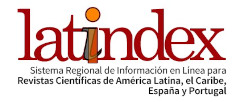METHODOLOGY FOR DETERMINING THE POTENTIAL TOURISTIC VALUE OF INTERPRETIVE TRAILS IN NATURAL AREAS
Keywords:
Scientific methodology. Tourism. Ecosystem services. Touristic potential. Regional development.Abstract
The attractive potential of an interpretive trail is closely related to biodiversity and should encourage and promote environmental conservation. Therefore, it is important that it can be quantified, considering the largest number of possible elements. In order not to compromise, the determination of these potential, subjective items should be avoided. The aim of this research was to develop a methodology based on a mathematical formula that can determine the touristic potential value of interpretive trails in natural areas, relating to different environmental variables and their values. The methodology consisted of grouping elements (1-condition of trail, 2- components that increase value, 3- components that reduce value, 4- environmental quality of the trail, which increase the value of the tourism potential of the interpretive trail) relative to variables, determining criteria and setting punctuation to develop the mathematical formula. After developing the formula, a test was applied using the Tatu Trail at Prosa State Park, Campo Grande, MS. The calculation determined a score of 5.9 for the touristic potential of the trail evaluated.Downloads
Published
2020-10-25
How to Cite
Oppliger, E. A., Rodrigues, R. A. de M., & Oliveira, A. K. M. de. (2020). METHODOLOGY FOR DETERMINING THE POTENTIAL TOURISTIC VALUE OF INTERPRETIVE TRAILS IN NATURAL AREAS. Revista Brasileira De Gestão E Desenvolvimento Regional, 16(3). Retrieved from https://www.rbgdr.com.br/revista/index.php/rbgdr/article/view/5884
Issue
Section
Artigos
License
Authors who have their papers accepted and published in the Brazilian Journal of Regional Management and Development must agree to the copyright policy CC BY https://creativecommons.org/licenses/by/4.0/.
If the article is accepted for publication, the copyright is automatically assigned to the Brazilian Journal of Regional Management and Development.

















